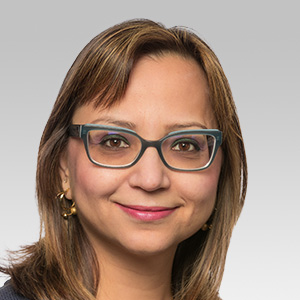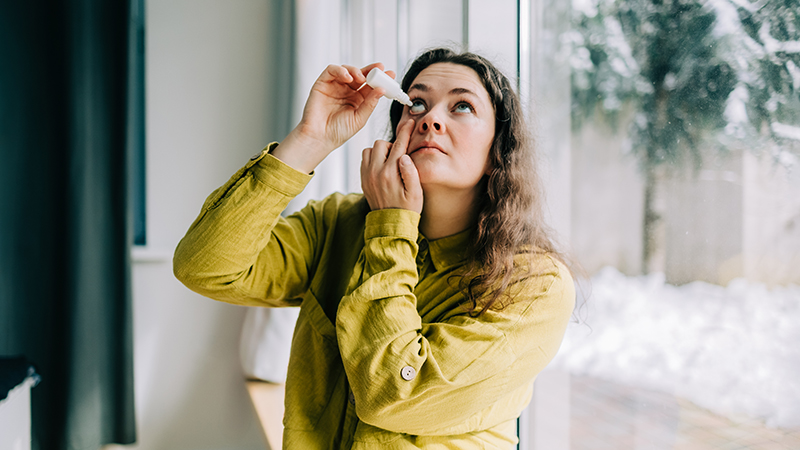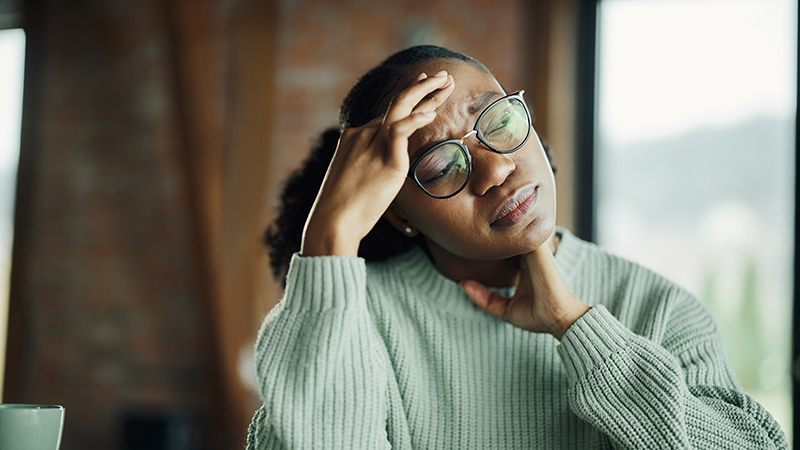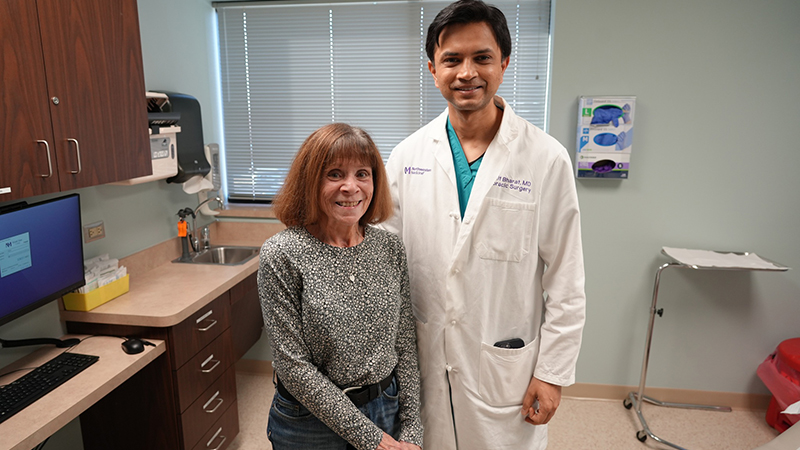Better Mental Health With Magnetic Stimulation Therapy
Treatment for Chronic Depression
Published May 2022
The number of people with mental health challenges has skyrocketed over the last few years. For people with persistent, severe depression, magnetic energy may offer some relief.
Transcranial magnetic stimulation (TMS) is a noninvasive treatment that uses electromagnetic pulses to stimulate areas of the brain that are underactive in people with depression. The electromagnetic pulses are used on the left frontal lobe of the brain, which is the region most consistently affected in those with major depressive disorder.
The statement I often hear is, 'I feel like myself again.'— Mona Lal, MD
"We know through research that people with depression have decreased levels of activity in that area of the brain," says Kirk Bergmark, APRN, director of Operations for Behavioral Health at Northwestern Medicine Palos Hospital.
The treatment helps "reset" neurons in the brain and provides patients with relief from depression symptoms. Stimulating this area of the brain can have a lasting effect on neurotransmitter levels, resulting in long-term relief. And because it treats depression at the source, TMS does not cause the side effects sometimes seen in those who take antidepressant medication.
Patients treated with TMS therapy stay awake during the procedure. The treatment takes place over a span of eight weeks, with patients going five days a week for six weeks, then three times a week for two weeks. Each treatment takes about 20 to 25 minutes. It is an outpatient procedure that needs no recovery time. "The statement I often hear is, 'I feel like myself again,'" says Mona Lal, MD, psychiatrist at Palos Hospital.
TMS has almost no side effects. A patient can drive themselves to and from their appointment with no impact on their daily activities. Some patients report discomfort at the treatment site, which can be treated with ibuprofen or acetaminophen.
After a few weeks of daily treatment, many patients find their depression is easier to manage, even without medication. TMS therapy is available by prescription only and is administered under the supervision of a psychiatrist.






